I think we are all going slightly mad. (Big boy coelacanth is an amuse resurrected plush, for all those asking)
Last active 4 hours ago
Don't wanna be here? Send us removal request.
Text
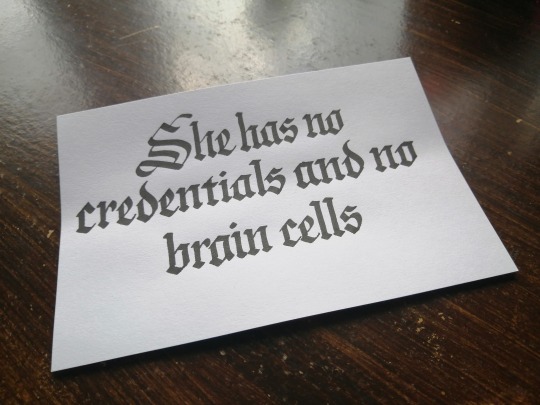
req'd by @kirahti
what politician we talking about this time
text: She has no credentials and no brain cells
714 notes
·
View notes
Text
when I was in high school my dad was speeding like crazy because I was running late to my job at the cemetery. and the cop who pulled him over gave him three whole tickets because who the hell goes 95 in a 25??? but then, when my dad went to court the cop didn’t show, and so the judge looked over at the charges and just couldn’t believe it. he thought the cop must’ve been so racist that he made it up because who the hell goes 95 in a 25? so my dad got all 3 tickets dismissed bc of racism. that he didn’t even experience because he was in fact going 95 in a 25.
78K notes
·
View notes
Text
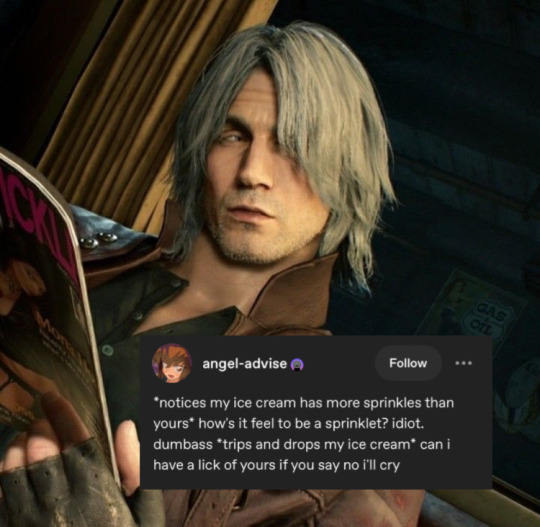
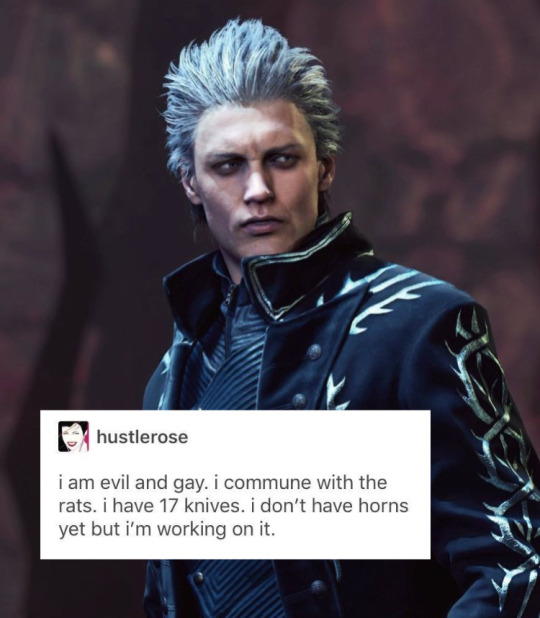
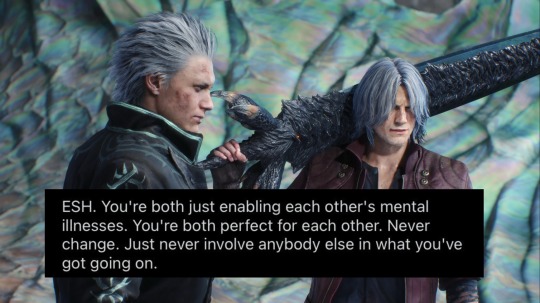
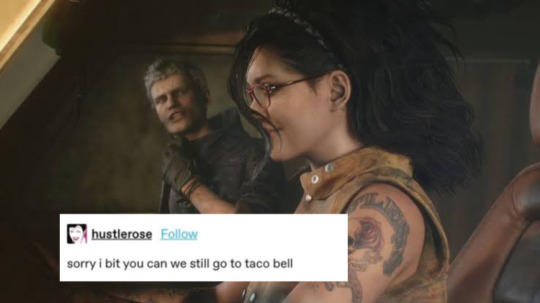
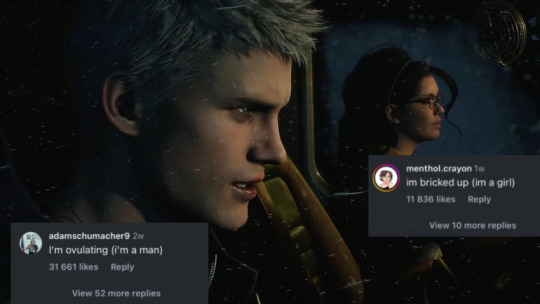
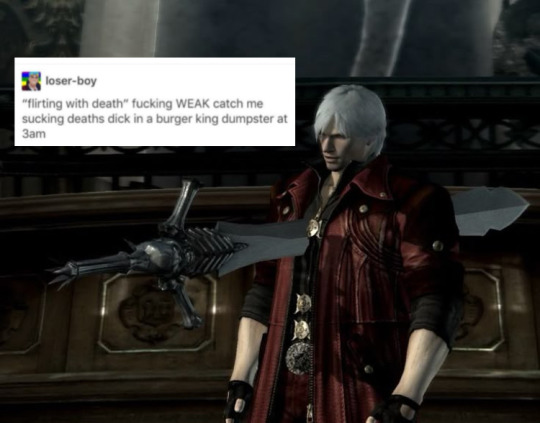
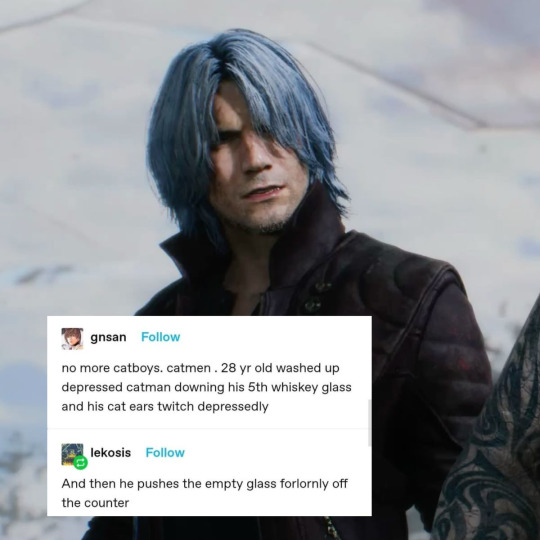

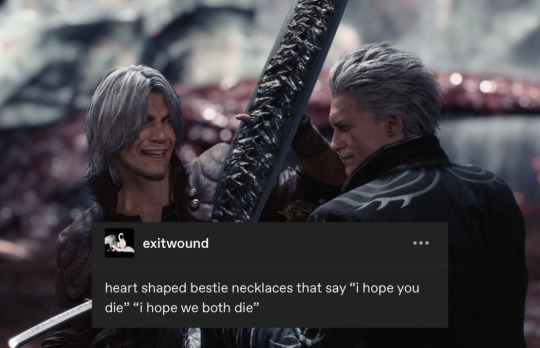
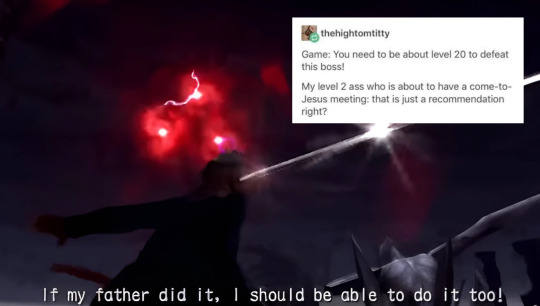
So I’ve been really into Devil May Cry recently
160 notes
·
View notes
Text

'Scent and Sensibility'. Aaron Brent Harker.
11K notes
·
View notes
Text



It’s DONE!!! I wanted to do some comic practice with my Lupus Automata characters both on a technical Art Level n work on Doing Comics with their personalities I have set down hehe… space yaoi send tweet.
Guy who was isolated from everything x guy who was exposed to everything way much and too early. They mean lots to me
344 notes
·
View notes
Text

Moonwatcher 🌕
Commission for vamkitten on bluesky! :D
Higher res, time lapse video, and drawing stage snapshots are up on my Patreon!
2K notes
·
View notes
Text
Amaya: So what's your specialty?
Rayla: Stealth.
Amaya: Me too!
Rayla: In that armor?
Amaya: Yeah, we just have different styles. For example, I use heavy stealth.
Rayla:...which is?
Amaya: Nobody can see you if there are no witnesses.
33 notes
·
View notes
Text
47K notes
·
View notes
Text
63K notes
·
View notes
Text
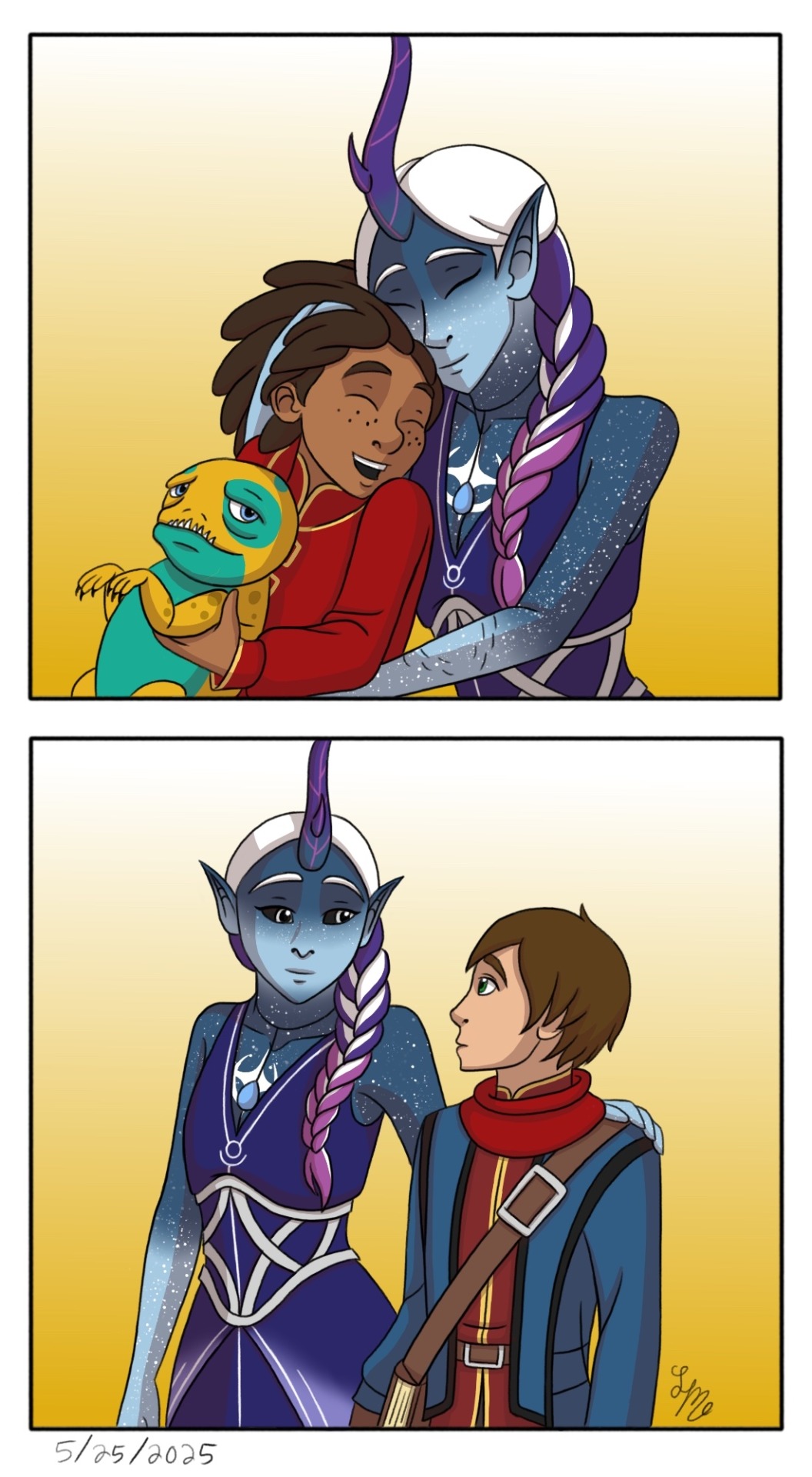
I bet Leola would get along great with the boys.
46 notes
·
View notes
Text
okay so I finished Incidents in the Life of a Slave Girl (1861) by Harriet Jacobs, and here are my takeaways, because it was AMAZING and I can't believe all US students aren't required to read it in school:
shows how slavery actually worked in nuanced ways i'd never thought much about
example: Jacobs's grandmother would work making goods like crackers and preserves after she was done with her work day (so imagine boiling jars at like 3 a.m.) so that she could sell them in the local market
through this her grandmother actually earned enough money, over many years, to buy herself and earn her freedom
BUT her "mistress" needed to borrow money from her. :)))) Yeah. Seriously. And never paid her back, and there was obviously no legal recourse for your "owner" stealing your life's savings, so all those years of laboring to buy her freedom were just ****ing wasted. like.
But also! Her grandmother met a lot of white women by selling them her homemade goods, and she cultivated so much good will in the community that she was able to essentially peer pressure the family that "owned" her into freeing her when she was elderly (because otherwise her so-called owners' white neighbors would have judged them for being total assholes, which they were)
She was free and lived in her own home, but she had to watch her children and grandchildren and great-grandchildren all continue to be enslaved. She tried to buy her family but their "owners" wouldn't allow it.
Enslaved people celebrated Christmas. they feasted, and men went around caroling as a way to ask white people in the community for money.
But Christmas made enslaved people incredibly anxious because New Years was a common time for them to be sold, so mothers giving their children homemade dolls on Christmas might, in just a few days' time, be separated from their children forever
over and over again, families were deliberately ripped apart in just the one community that Harriet Jacobs lived in. so many parents kept from their children. just insane to think of that happening everywhere across the slave states for almost 200 years
Harriet Jacobs was kept from marrying a free Black man she loved because her "owner" wouldn't let her
Jacobs also shows numerous ways slavery made white people powerless
for example: a white politician had some kind of relationship with her outside of marriage, obviously very questionably consensual (she didn't hate him but couldn't have safely said no), and she had 2 children by him--but he wasn't her "master," so her "master" was allowed to legally "own" his children, even though he was an influential and wealthy man and tried for years to buy his children's freedom
she also gives examples of white men raping Black women and, when the Black women gave birth to children who resembled their "masters," the wives of those "masters" would be devastated--like, their husbands were (from their POV) cheating on them, committing violent sexual acts in their own house, and the wives couldn't do anything about it (except take out their anger on the enslaved women who were already rape victims)
just to emphasize: rape was LEGALLY INCENTIVIZED BY US LAW LESS THAN 200 YEARS AGO. It was a legal decision that made children slaves like their mothers were, meaning that a slaveowner who was a serial rapist would "own" more "property" and be better off financially than a man who would not commit rape.
also so many examples of white people promising to free the enslaved but then dying too soon, or marrying a spouse who wouldn't allow it, or going bankrupt and deciding to sell the enslaved person as a last resort instead
A lot of white people who seemed to feel that they would make morally better decisions if not for the fact that they were suffering financially and needed the enslaved to give them some kind of net worth; reminds me of people who buy Shein and other slave-made products because they just "can"t" afford fairly traded stuff
but also there were white people who helped Harriet Jacobs, including a ship captain whose brother was a slavetrader, but he himself felt slavery was wrong, so he agreed to sail Harriet to a free state; later, her white employer did everything she could to help Harriet when Harriet was being hunted by her "owner"
^so clearly the excuse that "people were just racist back then" doesn't hold any water; there were plenty of folks who found it just as insane and wrongminded as we do now
Harriet Jacobs making it to the "free" north and being surprised that she wasn't legally entitled to sit first-class on the train. Again: segregation wasn't this natural thing that seemed normal to people in the 1800s. it was weird and fucked up and it felt weird and fucked up!
Also how valued literacy skills were for the enslaved! Just one example: Harriet Jacobs at one point needed to trick the "slaveowner" who was hunting her into thinking she was in New York, and she used an NYC newspaper to research the names of streets and avenues so that she could send him a letter from a fake New York address
I don't wanna give away the book, because even though it's an autobiography, it has a strangely thrilling plot. But these were some of the points that made a big impression on me.
Incidents in the Life of a Slave Girl also inspired the first novel written by a Black American woman, Frances Harper, who penned Iola Leroy. And Iola Leroy, in turn, helped inspire books by writers like Nella Larsen and Zora Neale Hurston. Harriet Jacob is also credited in Colson Whitehead's acknowledgments page for informing the plot of The Underground Railroad. so this book is a pivotal work in the US literary canon and, again, it's weird that we don't all read it as a matter of course.
(also P.S. it's free on project gutenberg and i personally read it [also free] on the app Serial Reader)
20K notes
·
View notes




























